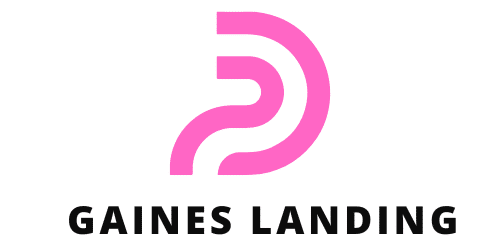How to Create a Personalized Learning Experience with Adaptive Software?

In a world where technology is shaping the way we live, it’s no surprise that it is also transforming the field of education. With adaptive software, learners are able to enjoy a personalized learning experience that is tailored to their specific needs and abilities. This article will delve into the nuts and bolts of adaptive learning, its benefits to students, how it works, and how to implement it in educational settings.
The Power of Adaptive Learning
Adaptive learning is a technology-based system that adjusts the content, pace of learning, and the level of difficulty, based on the learner’s performance and knowledge. This means that every learner gets a unique, customized learning experience that is attuned to their personal learning style and speed.
In parallel : How to Develop a Public Speaking Program Using Virtual Reality Simulations?
Adaptive learning technology is designed to provide immediate feedback, letting students know how they are doing, and teachers understand where their students are struggling. It provides an opportunity for learners to learn at their own pace, without feeling rushed or left behind. It presents students with challenges that are just right for their level of competence, ensuring that they are neither bored nor overwhelmed.
Implementing Adaptive Learning Systems
Adaptive learning systems use data to customize learning for each student. To implement this technology in a learning environment, educators need to gather data about their students’ learning styles, preferences, and progress. This data can come from a variety of sources, such as tests, homework, and even students’ interactions with the software.
Also to see : What Are the Best Strategies for Wildlife Conservation in Urban Environments?
Once the data is collected, it is fed into the adaptive learning system. The system then uses this data to create a personalized learning path for each student, adjusting the content and difficulty level based on the student’s performance and understanding. It’s truly a student-centric approach that puts the learner at the helm of their education.
The Role of Teachers in Adaptive Learning
While adaptive learning software is designed to provide learners with a tailored educational experience, it does not replace teachers. Teachers play a crucial role in the implementation and efficacy of adaptive learning systems. They are the ones who monitor student progress, provide additional support when needed, and intervene when the software’s algorithms may not fully comprehend a student’s learning needs or capabilities.
In essence, teachers act as a bridge between the technology and the students, ensuring that the educational content delivered is effective and appropriate. The data collected by the software also provides teachers with valuable insights into each student’s learning progress, allowing them to make data-driven decisions and adjustments to their teaching strategies.
Advantages of Adaptive Learning
Adaptive learning technology offers multiple benefits to students and teachers alike. For students, it creates a personalized learning environment where they can work at their own pace, focusing on areas they find challenging and skipping over content they’ve already mastered. This results in a more efficient and enjoyable learning experience.
For teachers, adaptive learning tools provide valuable data that can inform instruction and aid in curriculum planning. They can see which areas their students are excelling in and where they are struggling, allowing them to tailor their teaching to meet the needs of their students.
Moreover, adaptive learning is not limited to a traditional classroom setting. It can be used in corporate training, language learning, and even for users learning new software or technologies. In each of these settings, adaptive learning technology can provide learners with a personalized, efficient, and engaging learning experience.
The Future of Adaptive Learning
The future of adaptive learning looks promising. As the technology continues to evolve and improve, it will become increasingly precise in its ability to cater to individual learners’ needs. With advancements in artificial intelligence and machine learning, future adaptive learning systems will be able to provide even more personalized learning experiences, taking into account not just a learner’s academic performance, but also their motivational levels, emotional state, and more.
As we continue to harness the power of technology in education, the possibilities for personalized, adaptive learning are endless. Whether in the classroom or a corporate training room, adaptive learning technology holds the potential to revolutionize the way we learn and teach. So, embrace the world of adaptive learning, and let’s create empowering and enriching learning experiences for all.
The Potential of Artificial Intelligence in Adaptive Learning
Artificial Intelligence (AI) has a pivotal role to play in the future of adaptive learning. With its sophisticated algorithms and data analysis capabilities, AI can analyze vast amounts of information about a learner’s performance, behavior, and engagement levels in real time. This feature can be leveraged to create a highly personalized learning experience.
AI can understand a student’s learning patterns and habits, identify skills that need improvement, and suggest suitable learning materials based on the learner’s progress and preferences. This dynamic nature of AI tools can make learning more interactive and engaging for the students, thereby enhancing their learning outcomes.
Moreover, AI has the potential to revolutionize the way assessments are designed and delivered. By analyzing a student’s past performance and learning trajectory, AI can generate custom-made tests that are perfectly suited to evaluate the student’s understanding. This helps in providing accurate feedback, allowing for more targeted teaching and learning.
The role of AI in adaptive learning doesn’t end here. It can also help in predicting a student’s future performance based on their learning patterns, which can be immensely helpful in individualizing the learning path. All of these AI features and capabilities make it an integral part of adaptive learning platforms.
Blended Learning: The Perfect Marriage of Traditional and Adaptive Learning
Blended learning, which combines traditional face-to-face instruction with digital learning, can greatly benefit from adaptive learning technology. This combination allows for a rich, diversified learning experience that caters to the needs of individual students.
A blended learning approach can complement the adaptive software, providing the perfect balance between human interaction and technology-based learning. While the adaptive learning software provides a customized learning experience, the teacher’s role in traditional learning ensures the students’ social, emotional, and cognitive development. Blended learning, therefore, offers a holistic approach to education.
In a blended learning environment, adaptive learning systems can be used to deliver personalized content outside of classroom hours, thus extending learning beyond the confines of the classroom. Students can learn at their own pace and have more control over their learning, which can lead to improved engagement and better learning outcomes.
Conclusion
Adaptive learning is reshaping the education sector by providing personalized, efficient, and engaging learning experiences. With the use of data, AI, and smart algorithms, adaptive learning platforms offer a unique, student-centric approach to education, which can significantly enhance learning outcomes.
While technology plays a crucial role in delivering personalized content, the role of educators is equally important. They ensure the effectiveness of the learning process and provide necessary human interaction. The future of adaptive learning will be a blended learning approach that perfectly combines these two elements.
As technology continues to evolve, adaptive learning will become even more precise and personalized. In a world that is increasingly digital and data-driven, adaptive learning holds the potential to revolutionize the way we learn and teach. The future is indeed bright for adaptive learning. Let’s embrace it and strive to create enriching and empowering learning experiences for all.
